If you have a collection of essential oils, you’ve probably found yourself wondering, “Can essential oils expire? Do essential oils go bad? When should you throw away essential oils?”
Read on to learn the answers to all of these questions and more, so you can keep your essential oil collection up to date.
Do essential oils expire?
Not really! Essential oils don’t expire in the same way you’d think of food or other items ”going bad,” but they do go through a process of oxidization that begins as soon as the bottle is opened and the oil is exposed to oxygen in the air. Light and heat also increase oxidation.
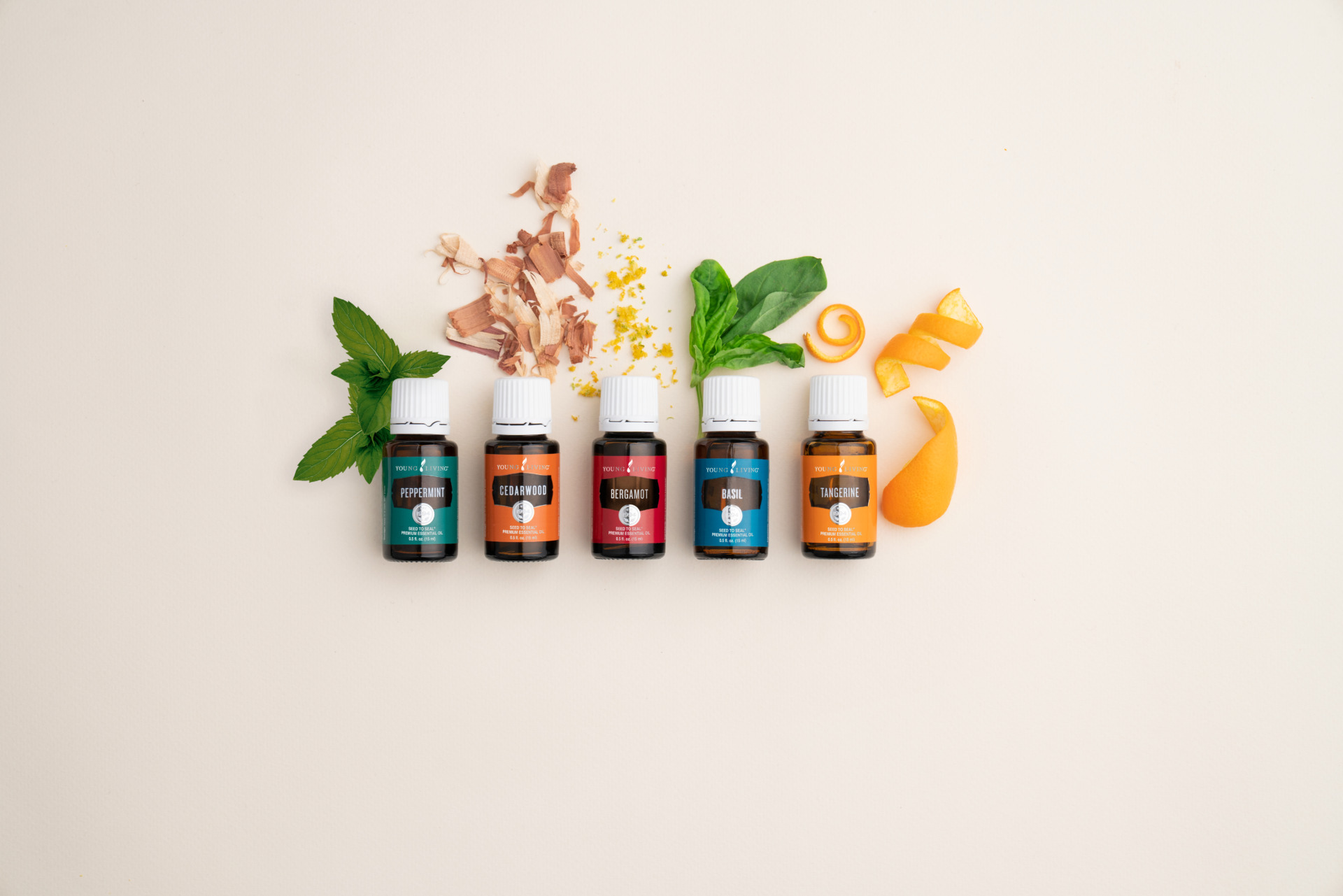
Essential oils and oxidization
What is oxidization?
When an oil comes into contact with oxygen, ultraviolet light, and heat, its composition begins to change. The oxygen bonds between molecules are transformed into carbon bonds. Over time, the essential oil starts to lose its strength and effectiveness as its chemical composition is broken down by oxidation. This is why most essential oils are sold in amber-colored bottles; the darker glass provides better protection against ultraviolet light.
How does oxidization apply to essential oils?
While essential oils don’t “go bad” the way food does, they do change over time. Because of these changes, we can’t fully determine the exact composition of essential oils after oxidation and recommend using oils only aromatically after their recommended shelf life has passed. The good news is, there are a few simple things you can do to slow down the rate of oxidation and extend the life of your oil.
How do I extend the shelf life of essential oils?
Extending the shelf life of your oils is pretty easy! Just follow these tips:
- Keep them sealed
- Store them in dark amber bottles
- Keep them out of direct light and heat
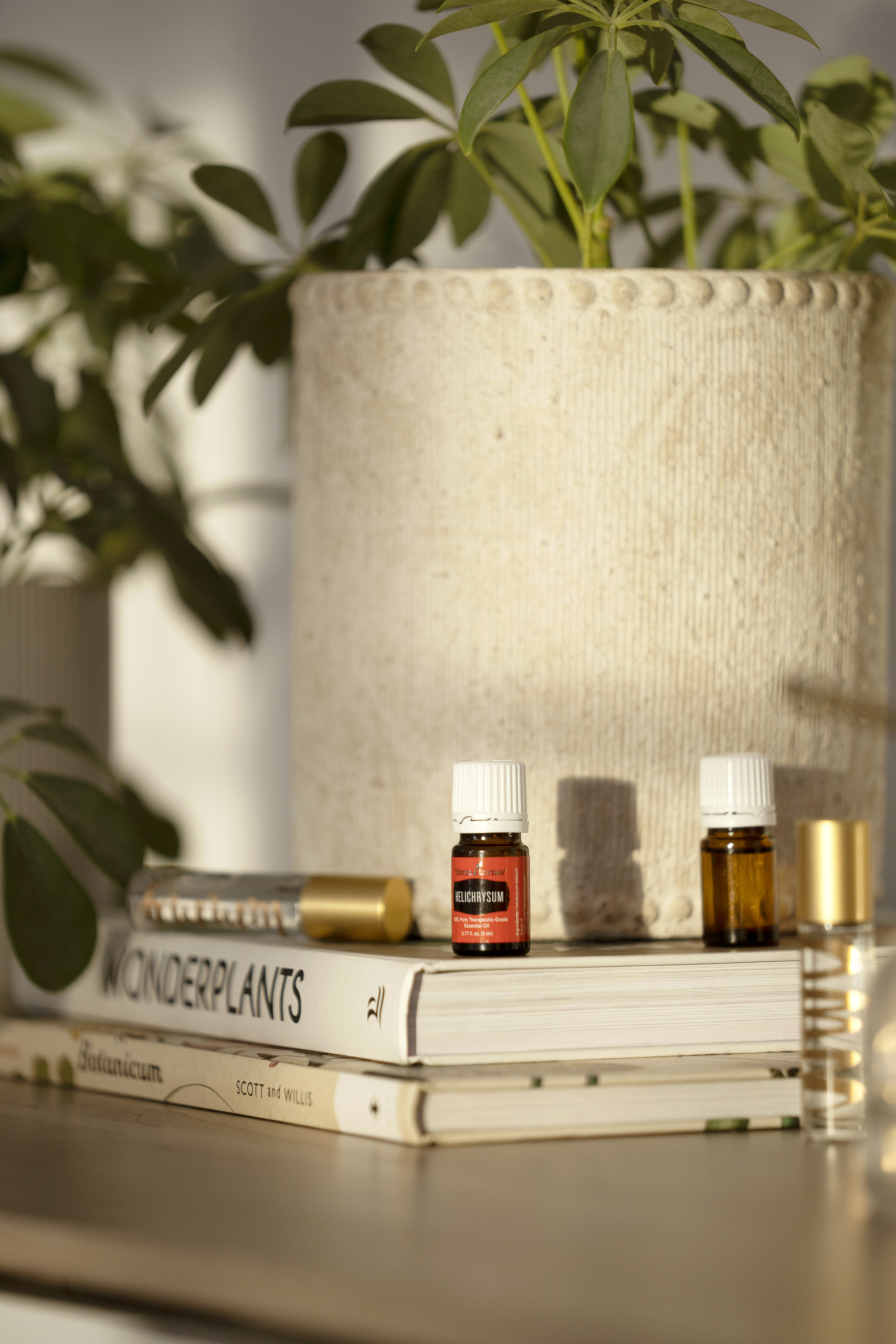
What is the shelf life of common essential oils?
Many essential oils will last about 2–5 years if stored in closed, dark glass bottles kept out of direct light and heat. Some oils like Patchouli, Sandalwood, and Vetiver can last 6–8 years.
Here are some timelines for popular essential oils:
- 1–2 years: Lemon, Lime, and Tangerine
- 2–3 years: Bergamot, Black Pepper, Copaiba, Cypress, Frankincense, Helichrysum, Lemongrass, Melissa, Rosemary, Spearmint, and Tea Tree
- 3–4 years: Cardamon, Cinnamon Bark, Clary Sage, Eucalyptus Globulus, Lavender, Myrrh, Thyme, and Vanilla oleoresin
- 4–5 years: Blue Tansy, Cedarwood, Peppermint, Wintergreen, and Ylang Ylang
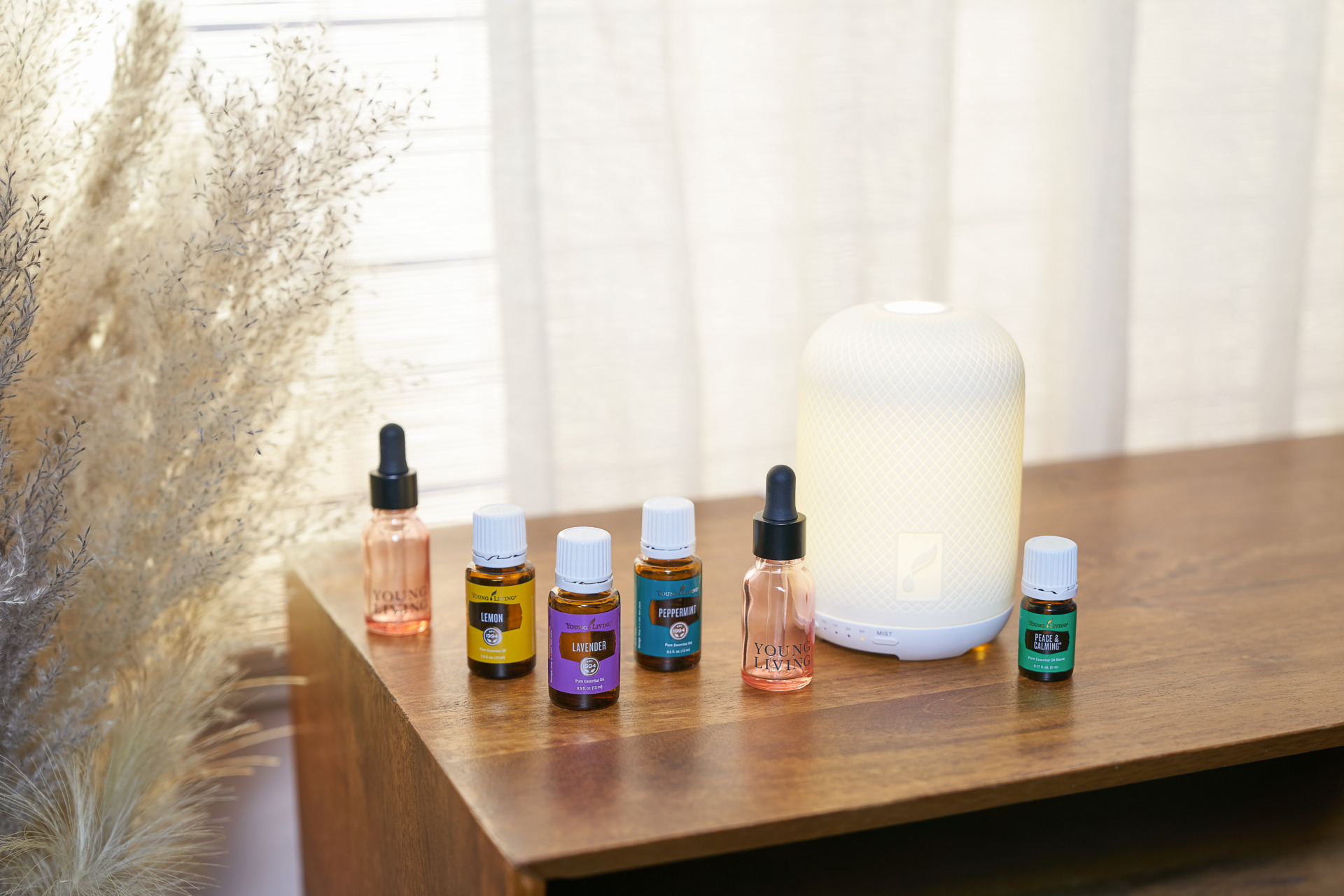
What to do with “expired” essential oils
While they don’t expire, eventually essential oils can oxidize to the point that you might need to replace them. Here are a few ideas for what to do with essential oils once they’ve reached that point:
- Diffusion: As long as you still enjoy the scent of the oil, diffusion is perfectly safe.
- Laundry: Keep fibers smelling their freshest by using a drop or two in your laundry. Just be sure not to apply oils directly to fabric!
- Cleaning: Use them in everything from fridge freshener and window spray to potpourri, cleaning fizzies, and more!
- Upcycling: Empty essential oil bottles can be used in dozens of creative ways, from craft supplies to DIYs.
Now that you know everything there is to know about essential oil oxidation and how to minimize its effects on your essential oils, we hope you’ll have more confidence in your ability to build and maintain a collection of essential oils as you use them throughout every aspect of your life.
Learn more about how to store your essential oils in this post.
Have you checked your essential oils recently for oxidation?

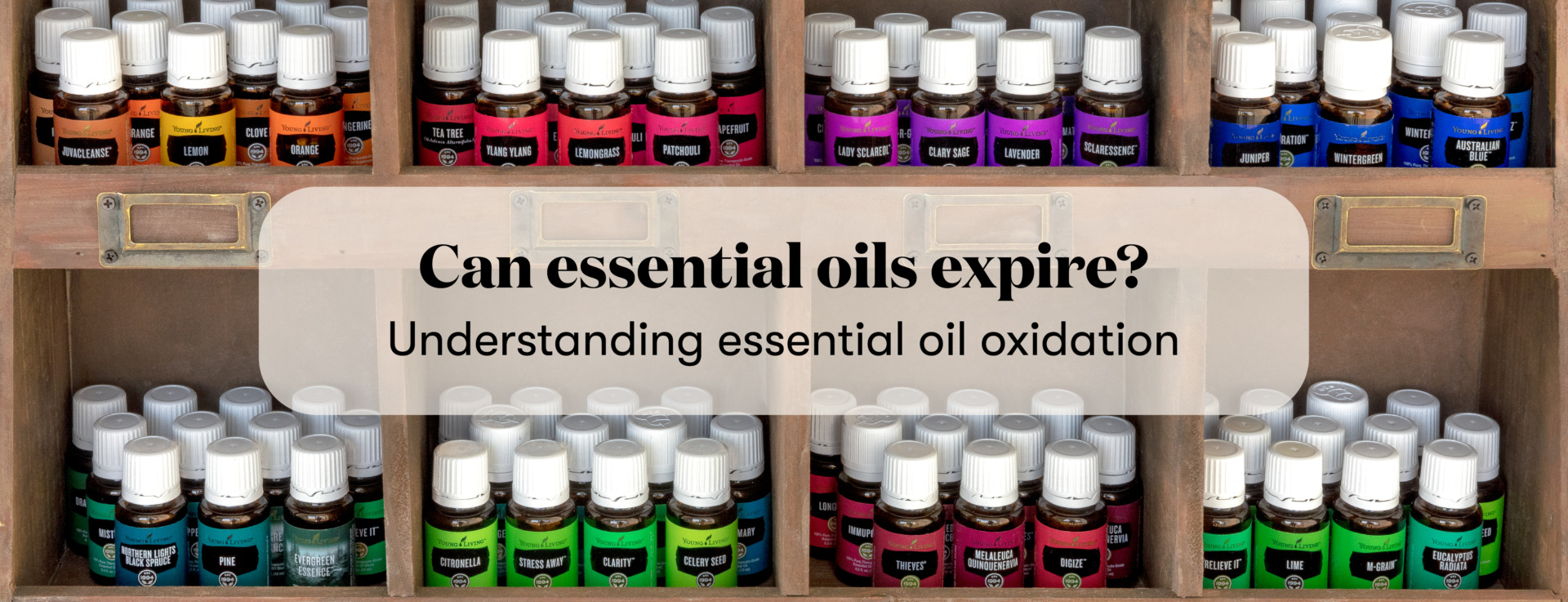


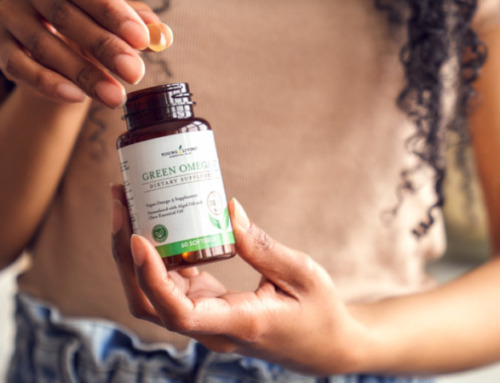
Leave A Comment